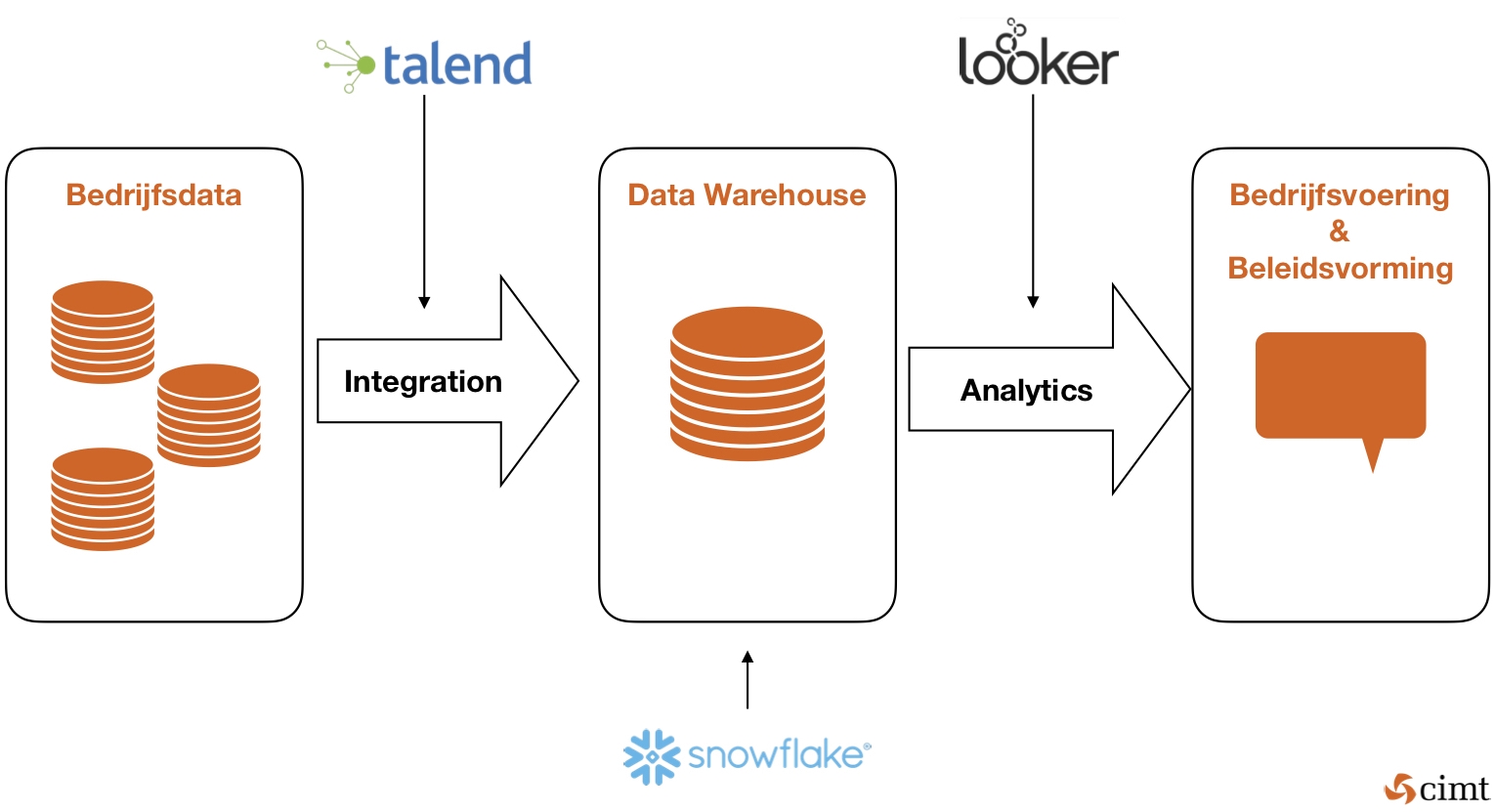LOOKER
After your company data has been brought together in a data warehouse, something needs to be done with this data. Before this information can form the basis for policy making and business operations, data needs to be converted into information. This transformation of data into information is realised by applying analytics.

cimt chooses Looker for the realization of analytics, because Looker is cloud and web-based. As a result, dashboards can always be accessed from any PC and employees are not tied to a PC on which certain software is installed.
Managed data
In order to provide users with ready-to-use and accurate datasets, developers can make these datasets ready for use in advance. In this way, relationships between tables and table aggregations can be defined beforehand. At this stage, business rules can also be applied and company-specific metrics can be defined. By using this “managed data”, data used by multiple business units will always match. Looker always displays live data; therefore, there are no local copies of data with the end users.
This does not mean that end users are dependent on the datasets that developers create: users have the freedom to explore data and create their own visualizations. In order to keep a grip on the data, the user is always able to zoom in to row-level data from Looker.
Sharing of information
When users want to share data with colleagues, they can simply share a URL to give access to a visualisation or image. In addition, it is also possible to schedule automatic reports, which can be sent by email or placed on an external FTP server, for example. Of course, reports can also be stored locally by a user. In this way you are flexible in the way you report and share information.
Subscription-based
Because Looker is subscription-based, this also makes it easy to step in: you pay for the number of users that have access to the platform and you don’t have to purchase a large software package for the number of users that will be working with the software in the coming years. So it’s easy to step into Looker with a small team and then scale your subscription as analytics play a bigger role in your business. If after a while it turns out that Looker isn’t the right tool for you, or that it’s not yet the right time to implement analytics in your company, you can simply cancel this subscription.
Connectivity
Looker can retrieve data from many different databases, such as Snowflake, MySQL, postgresql and MS SQL Server, as well as other databases (both local and in the cloud). Therefore, Looker is also a suitable choice if a data warehouse is currently hosted locally.
As a partner of Looker, we would like to give you insight into the possibilities and benefits of analytics in the cloud:
- Hosted in the cloud, so no worries about local installations or hardware performance
- Possibilities for managed data and encrypted data sets
- Queries directly on current data: no local copies of datasets at end users
- Subscription-based

